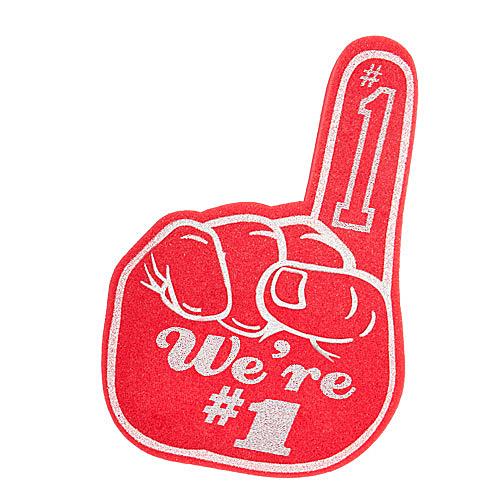Education Week’s Research Center just issued the final portion of its 2019 Quality Counts annual report, which rates each state’s education system. Guess what? New Jersey rocked it, for the first time beating Massachusetts, long-heralded for its high-achieving schools, and achieving #1 status as the top-performing school system in the nation. Two points jump out at me, one on our upswing in student proficiency in math and reading and the other on school spending and equity. Today we’ll look at the first and, in the next day or two, the second.
A brief look at the way EdWeek calculates scores; you can see a more thorough explanation of the methodology here. The Research Center uses three indices to gauge overall state school system quality: The “Chance for Success Index” looks at the quality and number of “education-related opportunities throughout an individual’s lifetime from cradle to career”; the “K-12 Achievement Index” looks at student proficiency based on the “gold standard” National Assessment of Educational Progress (NAEP) scores; the “School Finance Index” looks at per-pupil spending and how equitably that money is allocated. States are graded using 13 indicators for each Index. From the report: “Four of them deal with conditions related to early childhood that can make a big difference in the years before formal schooling. Six others focus on formal education from preschool through the college years. And another three offer a snapshot of adult outcomes, completing the cradle-to-career trajectory.”
Then the researchers average all the scores — each state can get up to 100 points on each Index — into one grade, A-F.
EdWeek’s research results are apolitical, uninfluenced by groups pushing for artificially-inflated grades to make lobbying groups and politicians look good. There’s no agenda, just unembellished data.
So let’s look at the data in the first two Indexes, “Chance for Success” and “K-12 Achievement.” Nationally, the U.S. got a “C+” for the first and a “C” in the second. New Jersey got a “B+” in “Chance for Success” and a “B” in “K-12 Achievement.” Okay, we didn’t beat Massachusetts in those two Indexes. But we still did really well. From the report: “New Jersey, the top-ranked overall state in 2019, is 17th for improvement in its K-12 Achievement score from 2008 to 2019 with a solid gain of 4.5 points.”
What’s changed? How did we improve our student achievement so significantly in the last nine years?
Answer: In 2010 we raised our standards for coursework by adopting the Common Core (now called NJ Student Learning Standards) and then, as required by federal law, we put teeth into the higher expectations by adopting end-of-year assessments that are aligned with those standards. And you know what? Our kids, teachers, administrators, and school boards rose to the occasion! We nailed it! We expected more and we got more.
Look, course content and a Metrocard will get you a trip on the subway. Course content and meaningful assessments that hold districts accountable for sticking to the standards? That’s a trip to the top of the pack.
However, all that progress may be transitory (as I discussed late last week, here and here). Gov. Phil Murphy ran on an NJEA-endorsed platform of “getting rid of PARCC on Day 1.” His appointed Commissioner Lamont Repollet undermines aligned assessments every chance he gets, hurling uncertainty about so that students don’t even know what tests they have to take to graduate. This is at least part of the reason why our student achievement flattened out this past Spring, and in some cases declined. Why take assessments seriously if they’re maligned by our top officials?
If I were a conspiracy-theorist (I’m not, by the way), I might think this was a case of sabotage, partly because the alternatives — utter incompetence or rank racism — are worse. (I guess that’s debatable.) After all, Repollet, while superintendent at Asbury Park Public Schools, instituted a system called “The 64 Floor” (you can read about it here) that makes it impossible for the district’s 99% Black and Latinx enrollment to fail courses. When students can’t fail courses, everyone gets a high school diploma. Murphy fell for the scheme and said that’s why he appointed Repollet as Commissioner. (Due diligence, anyone?) Repollet confirmed the 64 Floor before a legislative committee (see here) and explained that giving everyone a diploma is an example of “equity.”
No, Commissioner, that’s a perversion of equity: Parents cheer while their children collect diplomas in Asbury Park that signify not learning but seat-time. (Actually, sometimes not even that: Asbury Park has a “credit retrieval” system for chronically absent students that allows them to get credits through activities that don’t involve academics.)
Repollet said from the start that he would fulfill the Governor’s promise to NJEA to “eliminate PARCC Day 1” because aligned tests give families and schools honest information about student achievement and, hey, we can’t have that. We’re the state that likes to claim that 90% of our students are proficient in reading and math (as long as we ignore the NAEP scores, which are similar to PARCC results). Okay, it’s taking longer than Murphy/Repollet/NJEA thought, at least another two years. So here’s the new goal: We’ll replace PARCC on Day 1,460 with obsolete assessments that artificially inflate student proficiency.
Here’s the point: By continually undermining tests aligned with course content, Repollet and Murphy tell students, parents, teachers, and administrators that the tests don’t matter. We keep the content but remove accountability. Here’s your Metrocard.
Remember, the EdWeek report doesn’t include last Spring’s scores; if they did, we wouldn’t have gotten a “B” in the “K-12 Achievement Index.” Until last Spring we’d been trending upwards — our children’s proficiency was improving each year — and EdWeek’s calculations captured that. But when Quality Counts 2020 comes out, researchers will include this past year’s drops in 5th, 6th, and 7th grade proficiency rates, as well as our three-point drop in Algebra 1 from school years 2017-18 to 2018-2019. Most likely we’ll hand in the gold medal.
In an email sent to DOE staffers today (see below for the full text) Repollet brags on the EdWeek results. But if he, Murphy, and the State Board of Education are really committed to improving the quality of our state school system — heck, even just maintaining it — they will think long and hard about their plans to lower requirements for a high school diploma and create new assessments that lie to families.
Sure, one test can’t calculate a single student’s true proficiency in math and ELA — such a red herring! — but our district-by-district averages on standardized tests give us information about school quality. They tell us — parents, teachers, administrators, districts, the DOE — how well or poorly we work with English Language Learners and children with disabilities. They tell us where our weak spots are so districts can focus professional development most effectively. They tell us what we’re doing well. They help parents exercise wise choices in choosing districts and schools. If we follow the current plan — revert to something like our old ASK and HSPA tests which deceived residents into believing that 90% of our kids are ready for college — then we’re back to that perversion of equity.
And this, by all accounts, is the goal of the Murphy Administration.
********************************************************
Here’s the email from Repollet:
From: communications
Sent: Friday, September 06, 2019 6:27 PM
Subject: A message from Dr. Repollet
September 6, 2019
Dear Fellow NJDOE Employees,
The start of a new school year is always a joyous occasion, but this year in particular we have a great reason to celebrate: New Jersey schools<https://www.edweek.org/ew/articles/2019/09/04/new-jersey-tops-national-ranking-of-schools.html> rank number one in the nation, thanks in part to our commitment to funding education and to our push for educational equity for all students.
According to Education Week’s newly released “Quality Counts 2019,” their annual report of state education systems, “New Jersey has an advantage over Massachusetts in both spending and equity. It ranks sixth for per-pupil expenditures at $16,543, while Massachusetts is 13th at $14,529 once figures are adjusted for regional cost differences.”
Statistics show that not only do we devote 4.8 percent of our tax dollars to education, the report also found we ensure funding is more evenly distributed between wealthy and economically disadvantaged school districts.
This great news is a testament to the work we do each day to ensure our 1.4 million students come first. Our ranking is also a testament to how incredible and resilient each of our students are, and to the teachers, school counselors, support staff, principals, superintendents and others who shape the minds of our children daily: leading them to a love of learning and exposing students to opportunities for post-secondary success.
I’m proud of our commitment to uplift each child – from preschool to 12th grade. This news underscores the importance of equity in education to ensure all students have equitable access to resources and quality educational programming.
Another factor in our success as a department is that fact that we devote time and resources to help our staff thrive. We are investing in professional development opportunities to enhance personal and professional growth, which will ultimately benefit the 1.4 million children in the State of New Jersey that we serve. Governor Murphy has prioritized reigniting the innovation economy, and further, developing the talent pipeline to support it. Our work is focused on creating and providing these opportunities for students, but it is important that we too, are positioned to provide the guidance and leadership necessary to ensure their success. The policy on this opportunity will be available on our Intranet next Wednesday.
Our No. 1 ranking sets the tone for the school year, but it’s only the start of the great things we can accomplish together on behalf of New Jersey’s children. Again, thank you for all that you do for NJDOE.
Sincerely,
Dr. Lamont O. Repollet
Commissioner of Education





3 Comments